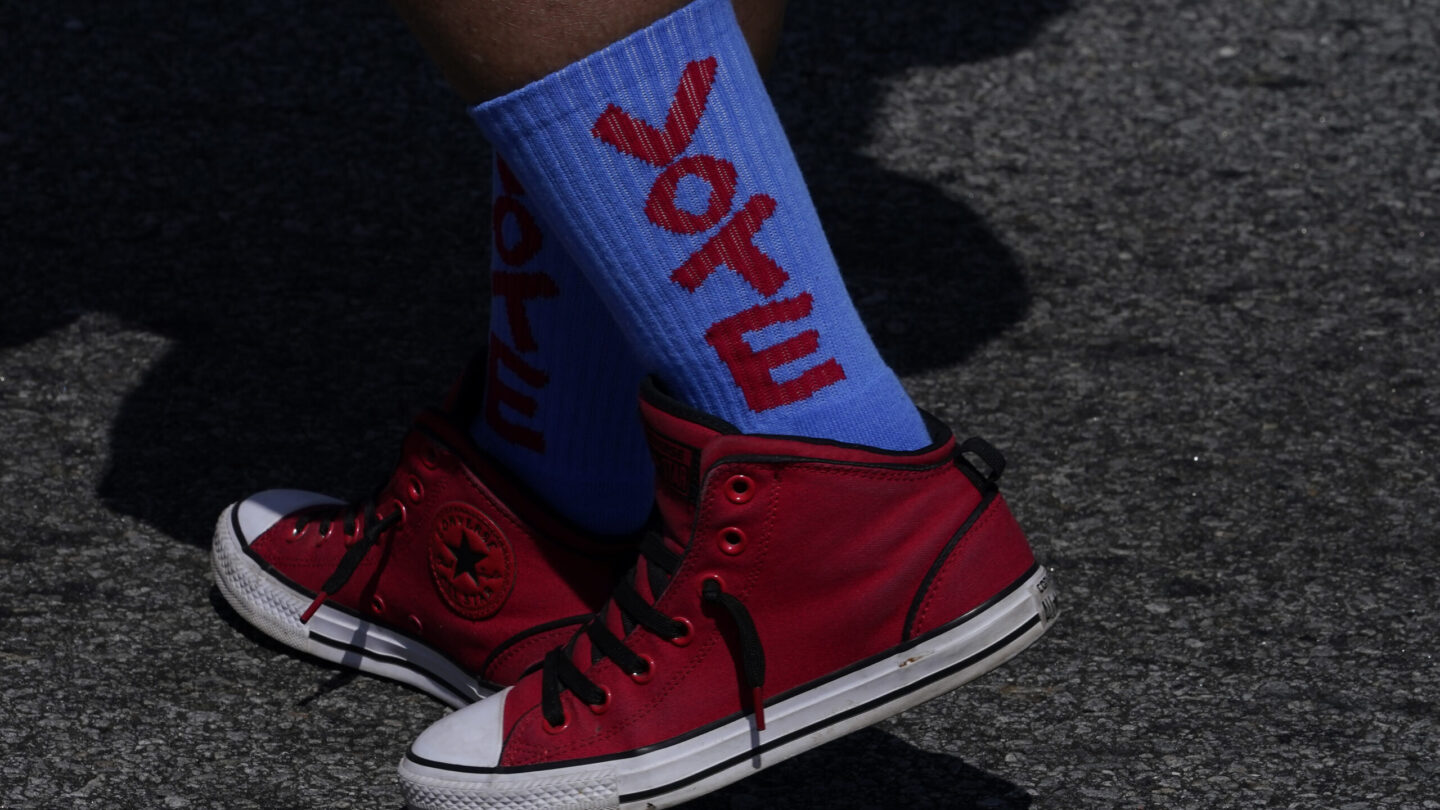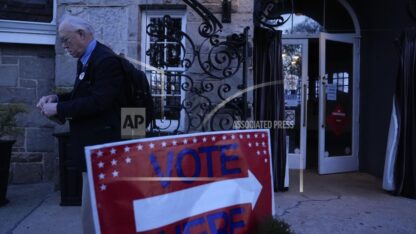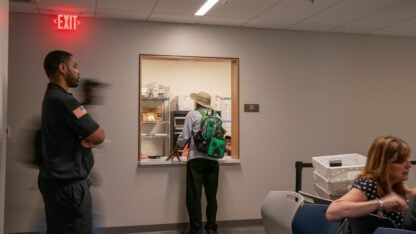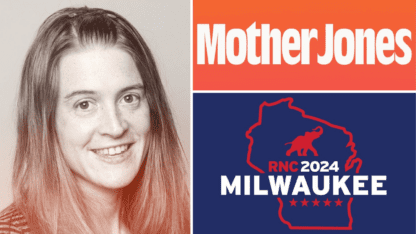A federal appeals court on Friday ordered that statewide elections for two Georgia public service commissioners be put back on the November ballot, only a week after a federal judge postponed the elections after finding that electing the five commissioners statewide illegally diluted Black votes.
A three judge panel of the 11th U.S. Circuit Court of Appeals blocked the lower court’s order after an appeal by the state, which follows a U.S. Supreme Court decision saying judges shouldn’t order changes close to elections.
The 2-1 split decision came at the state’s deadline for finalizing ballots ahead of the election, so there is enough time to print ballots before the first ballots are mailed to voters living outside the country in late September.
District 3 Commissioner Fitz Johnson and District 2 Commissioner Tim Echols, both Republicans, are seeking reelection to six-year terms. Johnson is being challenged by Democrat Shelia Edwards while Echols faces Democrat Patty Durand and Libertarian Colin McKinney.
Circuit Judges Robert Luck and Adalberto Jordan found that U.S. District Judge Steven Grimberg’s decision came too close to the election, that having Johnson and Echols remain on the commission past the end of their terms is an improper fundamental alteration of the state’s election system, and that not only did Grimberg need to issue his decision before the ballot printing deadline but far enough in advance “to allow for meaningful appellate review.”
Friday’s decision is not the 11th Circuit’s final word on Grimberg’s decision, but only a stay. Luck and Jordan clearly anticipate the plaintiffs will appeal to the nation’s highest court, writing in a short opinion that “if we are mistaken on this point, the Supreme Court can tell us.”
Circuit Judge Robin Rosenbaum dissented, saying the other judges were extending the doctrine barring changes close to an election to a whole new category of cases without “a sufficient explanation.” She said the majority is, in effect, letting the state conduct an election under a system that a judge already determined is illegally discriminatory.
“If we (as I think likely) determine that the current system violates the Voting Rights Act, then Black Georgians in Districts 2 and 3 are stuck — for the next six years, until 2029 — with commissioners whom they didn’t have their full role in selecting,” Rosenbaum wrote.
Grimberg broke new ground in finding that statewide elections violate the Voting Rights Act, although his decision hinged on Georgia’s decision of having candidates live in particular districts and run statewide.
He found that illegally handicapped Black-favored candidates, and that such candidates would have a better chance of winning if only voters in a district voted on each candidate, making it possible to draw at least one Black-majority district.
Attorney General Chris Carr appealed, arguing that that Grimberg fundamentally erred in his decision by concluding that race and not Democratic partisanship drove the defeat of the candidates preferred by Black voters. It also says the judge overstepped in concluding that only state law and not the state constitution requires statewide elections. Grimberg considered and rejected both those arguments.
Plaintiffs have said district elections would bring to the forefront concerns of Black voters, including people with lower incomes who pay high utility bills. The lawsuit was brought by leaders of the NAACP, Georgia Conservation Voters and Black Voters Matter.
The commission regulates Georgia Power Co. and other utilities, determining how much companies are allowed to bill millions of ratepayers.
If Grimberg’s ruling stands, state lawmakers would have to draw single-member districts for the commission.
Another federal judge earlier this year allowed Georgia’s congressional elections to go forward in redrawn districts even though he preliminarily found that the redistricting was likely to illegally harm Black voters.
Voting rights advocates have decried decisions that say allowing elections to go forward is most important, saying it allows states to proceed with illegal elections and sparking fears that the U.S. Supreme Court will gut the part of the Voting Rights Act that lets people win lawsuits challenging district lines and other voting provisions.
Rahul Bali contributed to this report.









